Exploring how arts and culture benefit our health
While we might hold the instinctive feeling that engaging with arts and culture is good for our health and wellbeing, investigating the extent of the benefits involved is no easy task. At the Centre for Performance Science at the Royal College of Music in the UK, Aaron Williamon, Rosie Perkins and Neta Spiro set out to do just this through a variety of research techniques. Their results, brought together in the HEartS project, have some important lessons for valuing and engaging with the arts.
Glossary
Closed questions — survey questions where possible answers are predefined, such as ‘yes/no’ or rating from 1 to 5
Demographics — the characteristics of a certain population, such as age, income and ethnicity
Open questions — survey questions without predefined possible answers, allowing participants to answer in their own words
At the Centre for Performance Science, at the Royal College of Music in London, Professor Aaron Williamon, Professor Rosie Perkins and Dr Neta Spiro suspect that the arts may bring more benefits to health than might be appreciated. If true, this could have big implications for healthcare and wider society – for instance, bringing the arts into healthcare spaces and regimes, and increasing opportunities for engaging with the arts for all in society. Besides benefits to health and wellbeing, this could even make economic sense: healthier people require fewer healthcare resources. With these broad issues in mind, the HEartS project sprang to life.
Listening to your HEartS
HEartS stands for Health, Economic, and Social impact of the ARTS. It was a broad project addressing the links between arts and health through a number of tactics. “The HEartS project focused on the link between cultural pursuits – like singing in a choir, playing an instrument, or participating in art classes – and health and wellbeing in society,” says Neta. “While previous studies have found links between cultural participation, good health and lower mortality rates, there haven’t been many looking at a wide array of arts activities across the UK.”
The HEartS project aimed to approach the question from a variety of angles, to collate comprehensive and robust evidence of such links. “The study gathered large-scale numerical data looking at the connections between arts engagement and health, as well as written accounts of people’s experiences of participation in the arts and feelings of connection with others,” says Neta. “It also looked at the financial value of engaging with the arts in relation to health and the costs of healthcare.” The team considered it important to take a broad-ranging approach; evidence of the relationship between arts participation and health can be elusive given the wide array of other variables present in everyone’s lives that can complicate the analysis of datasets.
Gathering experiences of arts and culture
One component of HEartS involved creating large-scale surveys with a range of open and closed questions covering both experiences of the arts and mental and social wellbeing. “Thousands of participants, corresponding with key demographic characteristics of people in the UK responded to the survey,” says Neta. “This gave us a wealth of data that allowed us to look for trends between participation in the arts, health and wellbeing. Data from closed questions could be treated numerically, allowing for statistical analysis, while data from open questions were processed by analysing the themes that people talked about.”
From this wealth of data, the team made some important discoveries. “The majority of adults taking part – 82% – told us that their participation in the arts is linked with feelings of social connectedness at least some of the time,” says Rosie. “This appeared to happen through four main pathways.” The first is that the arts provide social opportunities for meeting new people and making friends. The second describes the value of shared experiences, sharing emotions and purpose. “Thirdly, people reported that the arts can facilitate feelings of similarity and belonging, including feeling connected to other people with common interests and tastes,” explains Rosie. “The fourth pathway we found is that the arts enable learning from and about other people, bringing together people from different backgrounds and exposing them to different viewpoints.”
Pandemic support through the arts
The HEartS study included the period of the COVID-19 pandemic, which undeniably changed how people engaged with the arts. “While people reported the same four main ways that the arts supported their social connectedness, the ways that people used the arts changed,” says Rosie. “For example, people reported using the arts to maintain or strengthen relationships during lockdown, to feel direct and indirect closeness to others, to feel part of a collective ‘pandemic experience’, or to feel collectively distracted from the pandemic.”
This change in engagement likely had effects on health and wellbeing, as cultural engagement and social interactions in general became more limited. “Pre-COVID, people reported attending a live music performance as the form of arts engagement most linked with feelings of social connectedness, followed by watching live theatre and watching a film,” explains Rosie. “During the pandemic, the activity most listed was watching a film or drama, followed by listening to recorded music, showing that people changed how they engaged to meet the circumstances.” Despite such restrictions, the team found that the arts were important for helping people cope with the pandemic, even if most engagement was from within the confines of their own homes.
All lines of evidence
The HEartS project also searched for existing evidence on how people perceived participating in music as supporting their mental wellbeing. “By collating and reanalysing the findings of 46 studies, we found four pathways by which participatory music can support wellbeing,” explains Rosie. “These are managing and expressing emotions, facilitating self-development, providing respite and facilitating connections.”
Another part of the project took existing large-scale databases and analysed them for links between health factors, the economic effects of these health impacts, and people’s experiences of the arts. “Some of our work suggested that the arts can support public health challenges like reducing loneliness or alleviating symptoms of mental illness,” says Rosie. “Much of our current work is investigating ways to ensure that more people can access the arts and know about its potential health benefits.”
An international view
Reference
https://doi.org/10.33424/FUTURUM515
©Royal College of Music / Christopher Christodoulou
© Royal College of Music / Christopher Christodoulou
A research project in which the researchers explore the possibilities to equitably increase the access to musical care activities in the UK. This project is supported by the Leverhulme Trust, through the British Academy/Leverhulme Small Research Grants Scheme.
© Naveed A
The HEartS project has spurred a variety of other initiatives. The team is focusing its attention on the power of music around the world. “For example, we’ve recently launched two international networks: one on musical care, and another on music and parental wellbeing,” says Rosie. “We’re based in the Royal College of Music so we’re also planning lots of other projects that focus on music and health across different life stages and in different countries.”
Getting into the arts
People engage with the arts in different ways. Some will engage in one or a range of ‘receptive’ activities that involve experiencing rather than actively participating in the arts, such as going to the cinema and watching live performances. Others engage more actively, such as through acting or making music or art. “Research has suggested that personal preference is important for positive associations with the arts,” says Neta.
Personal preferences do not tend to spring out of nowhere, however. “Preference is likely connected to exposure,” says Neta. “The more we engage in a certain art, the more we become familiar with it, and the more we might like it.” The team recommends that people find their own artistic interests by experimenting with different kinds of locally-available arts or arts that can be done from home. “Even everyday engagement in the arts – such as listening to music or reading at home – can play a role in our identity, health and wellbeing,” says Neta.
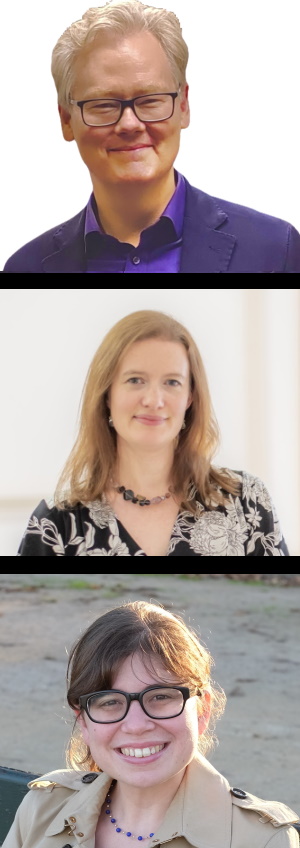 Professor Aaron Williamon
Professor Aaron Williamon
Head of the Centre for Performance Science
Professor Rosie Perkins
Professor of Music, Health and Social Science
Dr Neta Spiro
Reader in Performance Science
Centre for Performance Science, Royal College of Music (RCM), London, UK
Fields of research: Music and health, arts and health, performance science, social science, music psychology, musical care
Research project : Exploring the impacts of the arts and culture on health and wellbeing, including individual, social and economic perspectives
Funder: UK Arts and Humanities Research Council (AHRC, grant AH/P005888/1)
About music and health research
Studying the interplay between music and health is a growing area of research interest. “There’s a lot of momentum, energy and interest in music and health, at the moment,” says Rosie. “I think that future research opportunities will be linked with the questions we’re currently grappling with.” One such question is how to scale up successful interventions to reach more people at a greater and more diverse scale. Even once a research question is answered or a theory well-established, building the awareness, willpower and financing to roll out these efforts can be a challenging task, involving a range of skills beyond research.
“Working out how to embed music in complex health systems is another important task,” says Rosie. This involves understanding how health systems operate and where there are opportunities to engage with practitioners and patients alike to establish music as a legitimate contributor to good health – and making sure the programmes established have the right ‘ingredients’ to support health as effectively as possible. “It’s about research but also about how to translate research into change,” says Rosie.
Meet Rosie

I have always loved music, as far back as I can remember. It was the obvious degree for me, and, during my undergraduate studies, I became fascinated by the psychology of music. I decided to study music psychology at postgraduate level, and, later, was lucky enough to get a Research Assistant position at the Royal College of Music. I’ve been here ever since!
I’ve been interested in music and mental health for a long time. Then I became a parent! I realised that there was a need for more wellbeing support for parents, and there was a knowledge gap about how music could provide this support. So, my personal and professional lives both led me in that direction.
Currently, I’m working on the Music and Parental Wellbeing Research Network. We’re focusing on an inaugural symposium on this topic that will be held at the RCM in 2025. Before then, we hope to set out who we are, what we’re doing, and what we believe should happen next to enable more parents to access music. In the longer term, we aim to grow our membership and launch an international alliance to support the growth of work in this area.
The HEartS project allowed me to work with large-scale data in a new way. Investigating how and why people from all over the UK engage in the arts to support their mental wellbeing, through their own words, was a fabulous opportunity.
Setting up new programmes and modules at the RCM is incredibly satisfying. The MSc in Performance Science programme, which I direct, is a prime example. I love seeing students learn new things and run their own research projects, and it’s been a privilege to supervise lots of inspiring doctoral students.
I’m also proud of my books, which cover quite different areas. These include research methods, music and parental mental wellbeing, and the contemporary conservatoire (coming soon!). I also love that my research has led to new programmes for mums experiencing postnatal depression. It’s incredible to see I’m helping make a difference to people’s lives.
Music is a big part of my everyday life. I listen to music, sing and dance with my children, go to concerts, gigs and shows, and have played instruments like the recorder and clarinet.
Rosie’s top tips
1. Keep asking questions about the things you’re interested in. These questions can become research topics and take you in all sorts of directions.
2. Stay open-minded about what your career might look like and build up a range of skills. Anything from public speaking to research, to teaching and budget planning can come in useful.
3. An entrepreneurial mindset is important. Think about how to pitch new ideas, get funding and persuade others that new initiatives are worth it!
Pathway from school to music and health research
Rosie notes that the field is extremely interdisciplinary, so can be approached from a very wide range of directions.
At school, relevant subjects might include music, psychology, social science, biology and arts subjects.
At university, relevant degrees or modules can include music, psychology, music psychology, social science, and creative health.
Explore careers in music and health research
The UK’s National Centre for Creative Health is involved in using research to bring the arts, culture and creativity into health and social care. Its website provides a useful starting point to learn about efforts in the space.
The Culture Health and Wellbeing Alliance has a wide range of resources, events and links to research, case studies and more.
The Royal College of Music runs a Performance Science master’s degree that brings together social science research methods with topics like arts and health, performance psychology, and performers’ health.
Arts Emergency connects young people with interest in the arts with industry mentors.
While salaries vary widely, Glassdoor reports that the average salary for a public health researcher in the UK is around £36,500 per year.
About performance science
While most people might first think of sport when they hear about performance science, the field is far broader – encompassing any type of public performance, be it music, acting, dancing or public speaking. The Royal College of Music’s Centre for Performance Science focuses on artistic performances. “Performance science is a very responsive field,” says Neta. “Advances in technology, for example, directly affect what can be explored next.”
The RCM team is interested in unpicking the links between performance science and health. While a person’s health may influence their performance, performing may also impact their health.
The HEartS project and other pursuits are uncovering evidence for how performing and being involved in music can bring important health and wellbeing benefits, and Neta believes that these relationships are only just beginning to be understood. “There is plenty more scope for research that explores how performers can optimise their work, look after themselves and contribute to the communities around them,” says Neta. “There is also a need for more research on how to best teach and support the role of music in healthcare, as well as research into how people can access music for their health in whatever life circumstance.”
Meet Neta
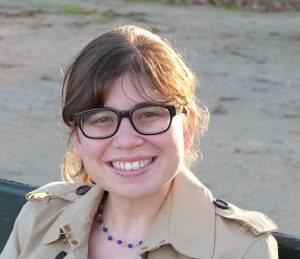
I played and listened to a lot of music growing up. I was intrigued by why people choose to engage with music. I studied music as an undergraduate and cognitive science as a master’s student. My PhD and later research work combined these two areas through studying the psychology of music.
All my work sits where music and psychology meet. This allows me to explore questions I’m interested in, and also to meet a wide range of people from a variety of personal and professional backgrounds. I find people’s perspectives on music, and the roles it can play in their lives, absolutely fascinating.
I became interested in understanding what it feels like for different people to listen to music and to make music with others. This led me to investigate how much we might agree on our interpretations of the music we hear or play. For example, do members of music groups (be they jazz or classical chamber groups) agree on what happens when they make music and to what extent does their level of agreement affect their experience of making music together? This interest in understanding what it feels like to engage in music also led me to investigate the connection between arts engagement and health.
HEartS was an ambitious project in scope and scale. It was my first opportunity to release substantial surveys to a huge range of people. It brought with it the opportunity to learn from our participants, not only about their experiences of the arts but also about the connections between what they do and how they feel.
I’ve enjoyed launching and co-leading the Musical Care International Network. We have over 200 members from 40 countries, which has helped me appreciate the depth and breadth of the topic. This network grew from a book I co-edited (called Collaborative Insights: Interdisciplinary Perspectives on Musical Care Throughout the Life Course), and we now go to public spaces to share what we have learnt so far and to hear from others about the roles of music in their lives. I’m delighted to find ways to share academic work with members of the public. I also love teaching students – it’s incredibly rewarding to learn from them and see them grow.
I want to understand more about how musical care work can be helpful. I have developed this interest as Head of Research at a music therapy charity in London and now at the Royal College of Music. This wish led to my work exploring the roles that music can play in people’s lives as well as the opportunities and barriers that people experience in being able to access musical care activities.
Neta’s top tip
Stay curious and act on your curiosity. New research comes from learning to ask questions and also listening to others. Read their work, listen to what they say, and appreciate the music they play!
Pathway from school to performance science
Neta notes that performance science is a very interdisciplinary field, requiring expertise from a wide range of backgrounds.
At school, useful subjects can include music, biology, psychology and computer science.
At university, useful courses or modules include music, neuroscience, biology, physiology, psychology, computer science, economics and policy. The field is very broad!
Explore careers in performance science
The RCM’s Centre for Performance Science has a whole host of resources revolving around its research. Much of its work is also explored on its YouTube channel.
The Healthy Conservatoires website explores how performance arts schools can be good places for health and wellbeing. Resources include links to research, films, case studies and opportunities to get involved.
Salaries vary widely in the field. Glassdoor says the average salary for a music researcher is around £32,400 per year.
Do you have a question for Rosie, Neta and Aaron?
Write it in the comments box below and Rosie, Neta and Aaron will get back to you. (Remember, researchers are very busy people, so you may have to wait a few days.)

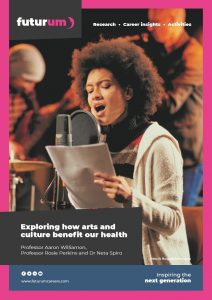
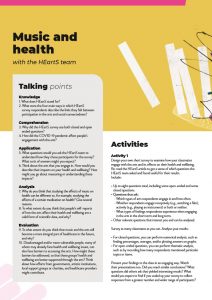


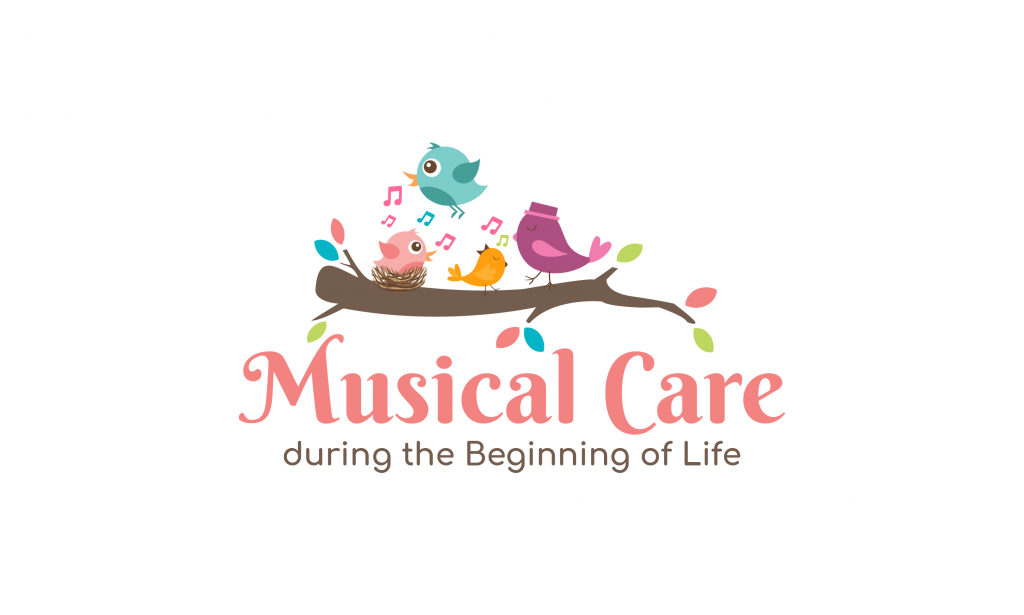
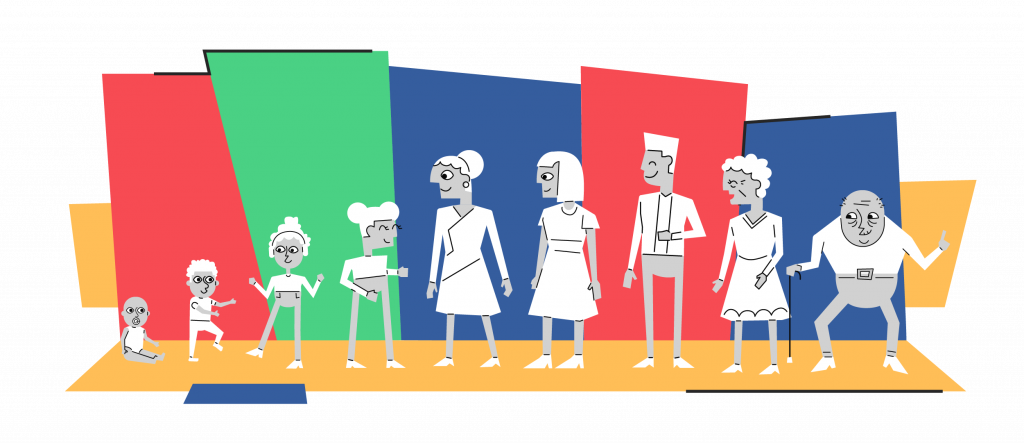
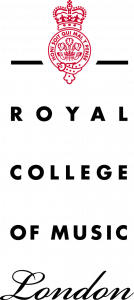
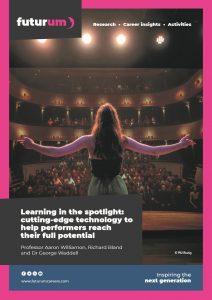
0 Comments